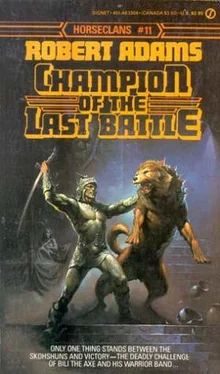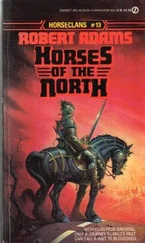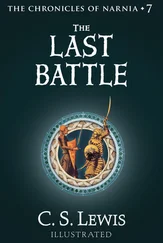But the earl raised a hand, saying, “Please, sir, we are not brutal barbarians, but civilized folk. Whilst they bided within the glen, the woman and her men were well treated, for all that they had most cruelly ambushed first an ill-armed party of woodcutters, then a patrol of dragoons, killing and wounding many men with their deadly, firespitting weapons.
“Brigadier Ahrthur Maklarin, who commands our field army, sent for them, that they might use those selfsame weapons to aid his men in the taking of a fortress-city to the southeast of here. So I am certain that they are now no less well kept than they were here, especially so if they are truly become our allies.”
But Corbett shook his head. “Frankly, Mr. Devernee, I don’t believe you. I reiterate: Have them all in my camp by dawn tomorrow, or what I do and order done to your people and that glen will be solely on your head.”
“But I speak the full, honest truth, sir!” the earl expostulated. “How can you be convinced? Please, sir, tell me.”
Lady Pamela Grey read the short letter conveyed to her by the leader of the aliens, then looked up from it at the dark-haired, black-eyed stranger. “A well-built man,” she thought. “Strong and fast, from his looks. Thick as his wrists are, he could probably cleave a man from pate to belly with that saber he wears. And he’s certainly gentle-born and -bred, for his air of command is entirely too natural for him to be else. Now, if only he were friend rather than foe ... ?”
“Sir,” she said coolly, “this is assuredly Earl Devernee’s mark and seal. If you wish to truly search this glen, I shall see to it that you are in no way hindered, that all buildings or enclosures are gaped open to you at your pleasure. But I should think that the fact that the earl, our hereditary leader, was willing to voluntarily place himself a hostage in your camp might convince you that he is an honorable, a just and a truthful man.”
“Were I in his place,” said Corbett in a tone no less cool, stiff and formal, “were I the hereditary leader of a people, I certainly would prevaricate to protect those people; I could do no less for those who depended upon me, however much such a deed might compromise my personal sense of honor, madam. I think that your Mr. Devernee and I are much alike in that and in other ways, so, yes, I do intend to search this glen... and not only for living bodies, but for fresh graves, as well.”
But she shook her head with a swirl of dark-blond hair. “You will find nothing recognizable in any grave in this glen, not a recent one, one dug since we conquered it. Only upon the field of battle, where large numbers of corpses are involved, do we practice inhumation; in usual practice, we cremate our dead, burying the ashes in pots or small caskets.”
Corbett thought fast and lied glibly. “Even so, there will be proof if you people have murdered Dr. Arenstein, for a section of bone in one of her arms had been replaced with a silver one ... unless it is your custom to rob the dead.”
Fire blazed from her blue eyes. “Sir, must I say it again that we are not barbarians? We have enlarged a natural cavern to make a common crypt, and I shall be more than pleased to show you to it; you may open every casket, unseal every pot and sift ashes to your heart’s content, if that is your desire. But I state here to you the fact that that woman and all of her companions departed this glen as part of a reinforcement and supply train bound for our army nearly two months agone. If you seek her and them, you must do such beneath the walls of New Kuhmbuhluhnburk, not here.”
Bili of Morguhn handled the dusty, dirty device of wood and metal gingerly, so recently having seen the evidence of its deadly capabilities. Carefully, he laid it on the floor beside his armchair and regarded the enemy captive—now weighed down with heavy fetters—before him.
At last, after a searching appraisal, he said, “You’re a Ganik, aren’t you? What’s your name?”
Counter spat on the floor at the feet of the seated man and sneered. “Go fuck yersef, yew skinhaidid cocksuckuh, yew!”
Bili sighed. “I would have preferred to keep this simple and civil, but obviously you Ganiks have no concept of civility.
“Master Oodehn,” he bespoke the Kleesahk who had captured and brought back the prisoner, “put me a rope over that beam up there, then fetter this man’s wrists behind him, tie one end of the rope to the center of the connecting chain and hoist him up by it. I want his feet about my height off the floor. I learned long ago, at the court of Harzburk, how to obtain cooperation from recalcitrant prisoners.”
Counter, who had over the years taken such savage delight in sadistically torturing hundreds of men, women and children, proved, however, to have a very low personal pain threshold. His feet were not a foot off the floor when he began to scream, as his own body weight began to strain the muscles and ligaments of his shoulder joints to the tearing point.
Bili mindspoke the Kleesahk to lower the captive, but only to just where his toes could take a part of his weight. Then he said grimly, “Now you know that I mean business, Ganik, and that I have no intention of enduring either stubborn silence or insult from you.
“Now, once again, what is your name? Where did you get this weapon and how does it work? How many of them do the Skohshuns have?”
When, by dint of alternate demands and threats, plus a bit of reading of the contents of the prisoner’s completely nonshielded mind, Bili felt that he had all of the information that Counter Tremain could give him, he mindspoke the Kleesahk, Oodehn.
“Can you wipe any memory of all this, from capture on, from this Ganik’s mind, Master Oodehn?”
The huge hominid wrinkled his hairless brows in a very human way, beaming back, “No, Lord Champion, I doubt that I can. But I am certain that Pah-Elmuh could.”
Pah-Elmuh had but just withdrawn the tube from the throat of the comatose King Byruhn, after having forced a small measure of a milk—and-brandy mixture into his stomach, when Bili’s mindcall reached him. After beaming an affirmative response, he carefully cleansed the unconscious monarch’s beard and mustaches, drew up the sheet and blanket and the silken coverlet over the nude body against a possible night chill, then made his way toward the chamber from which Bili had called him. As the entire chamber was bathed in the soft, silver radiance of the moonlight, the Kleesahk blew out the flame of the lamp as he exited the sickroom.
Counter Tremain started and looked warily about him, but he could discern nothing anywhere near to the rifle pit that was to be feared. Shaking his head, he muttered under his breath.
“Dadgummit! Thet climbin’ musta plumb wore this ole boy out fer to put me to sleep lahk thet. Gonna hev to be some carefuler awn the way back down, too, cawse both my dang ole shoulders is sorer ’n a dang boil. Hell, I’m sore awl ovuh!”
He checked his rifle once again, made certain that a round was chambered, that the magazine was full, the safety engaged and the calibrated rear sight set properly—all the things that Erica had taught him and the other rifle-armed bullies last year, far to the southeast when they had dug the weapons out from among the clean-picked bones beneath the rockslide.
That done, Counter rolled back onto his back, took a long pull at his waterskin, then settled himself to sleep the rest of the night away. His mission did not start until sunup.
At breakfast on the morning after the capture, mindwiping and release of the Ganik, Counter Tremain, Thoheeks Bili was apprised by the commander of the night watch that the huge killer wolf had once more penetrated the lower city and, this time, made its way into a house to seize, kill and partially devour its human victim. There were firm paw prints in a tiny garden plot near to the house, and, moreover, a neighbor had gotten a fleeting glimpse of the beast in the bright moonlight, his testimony confirming that it was indeed a rusty-roan wolf, though by size the grandsire of all wolves—past, present and future.
Читать дальше












